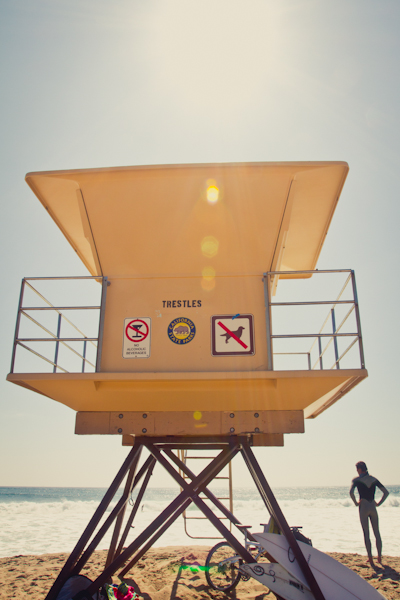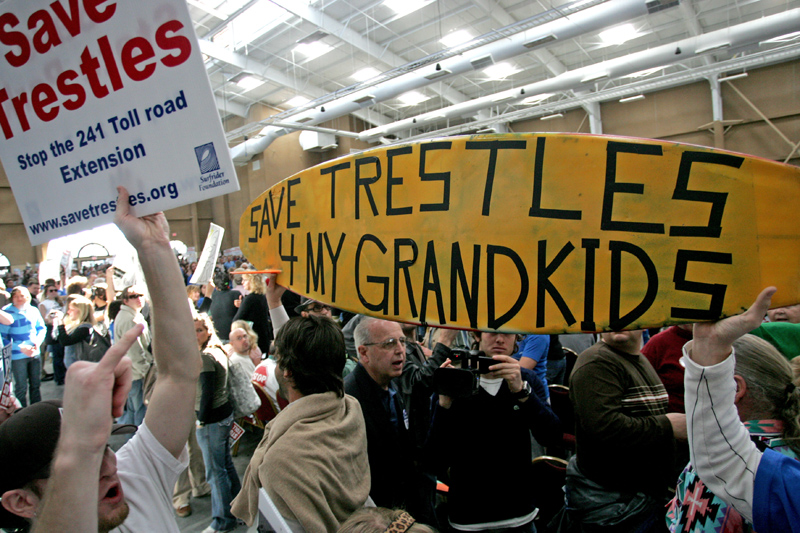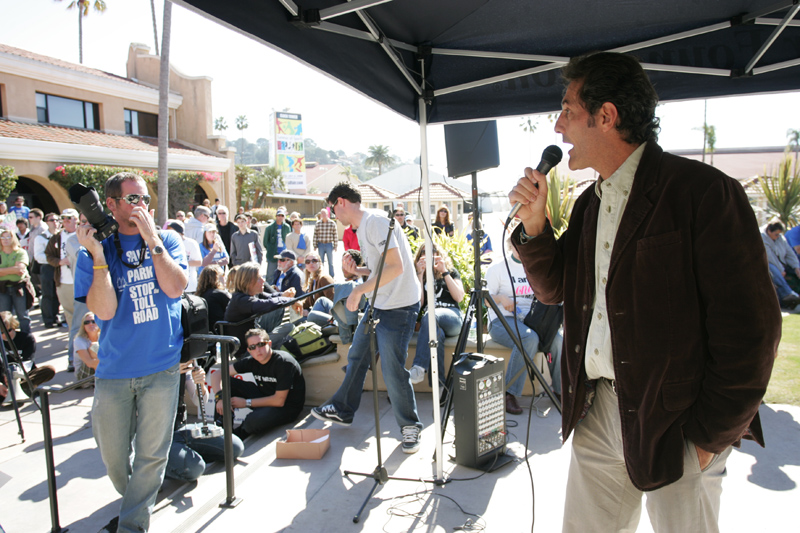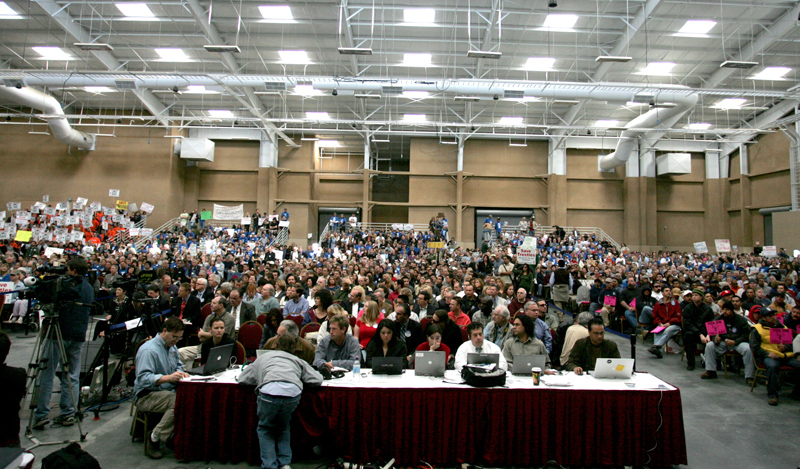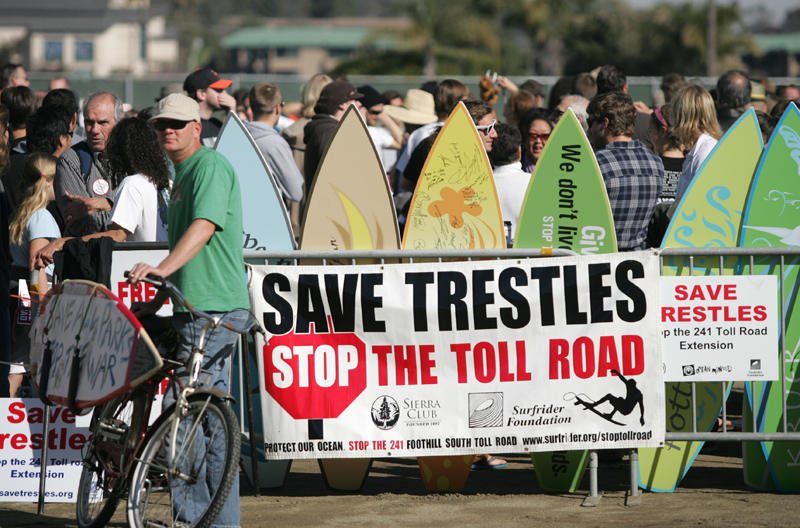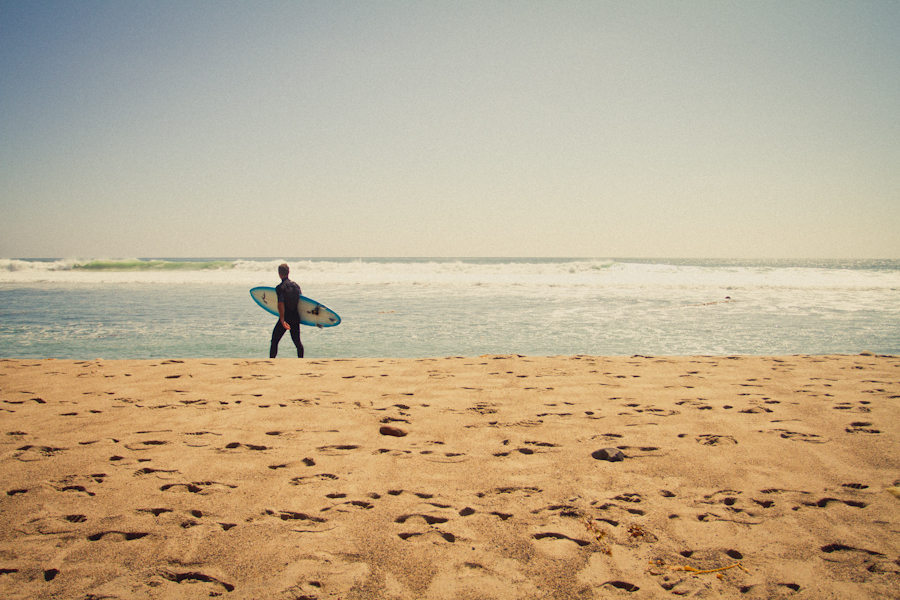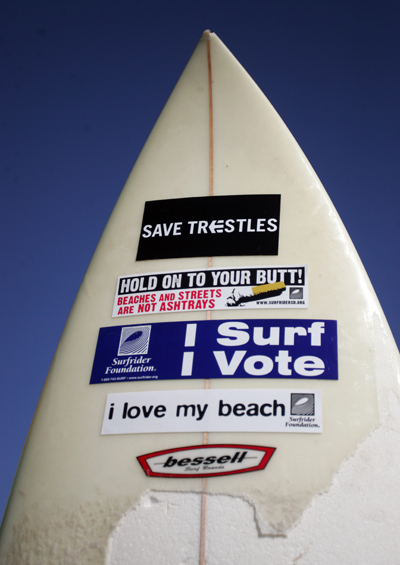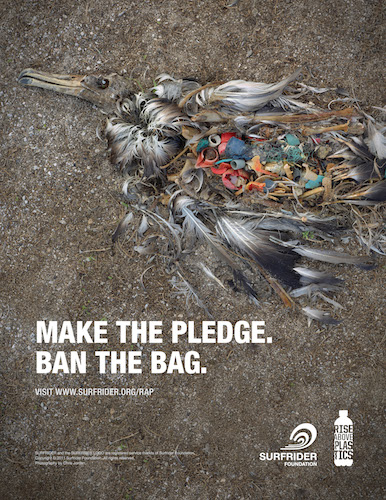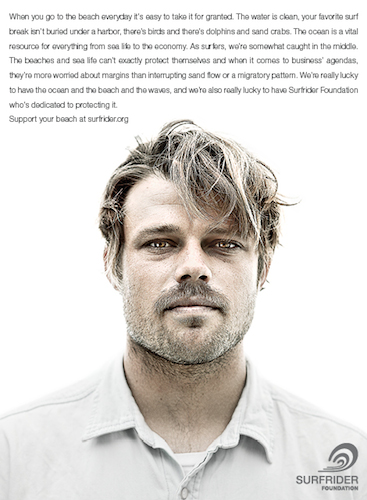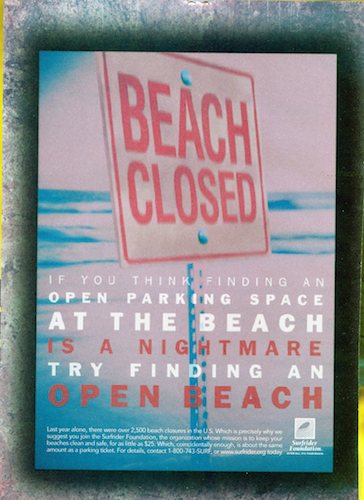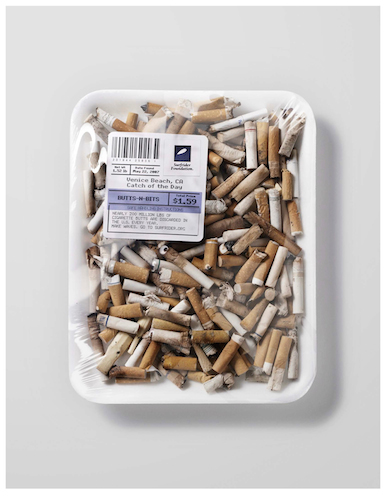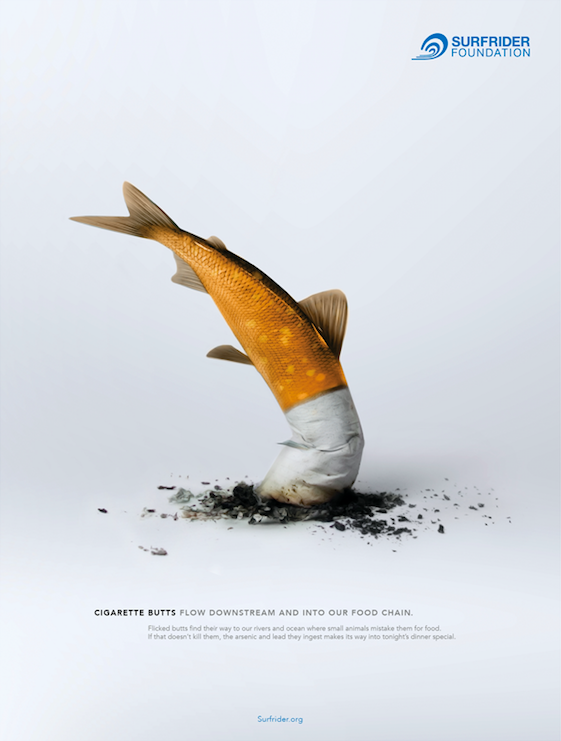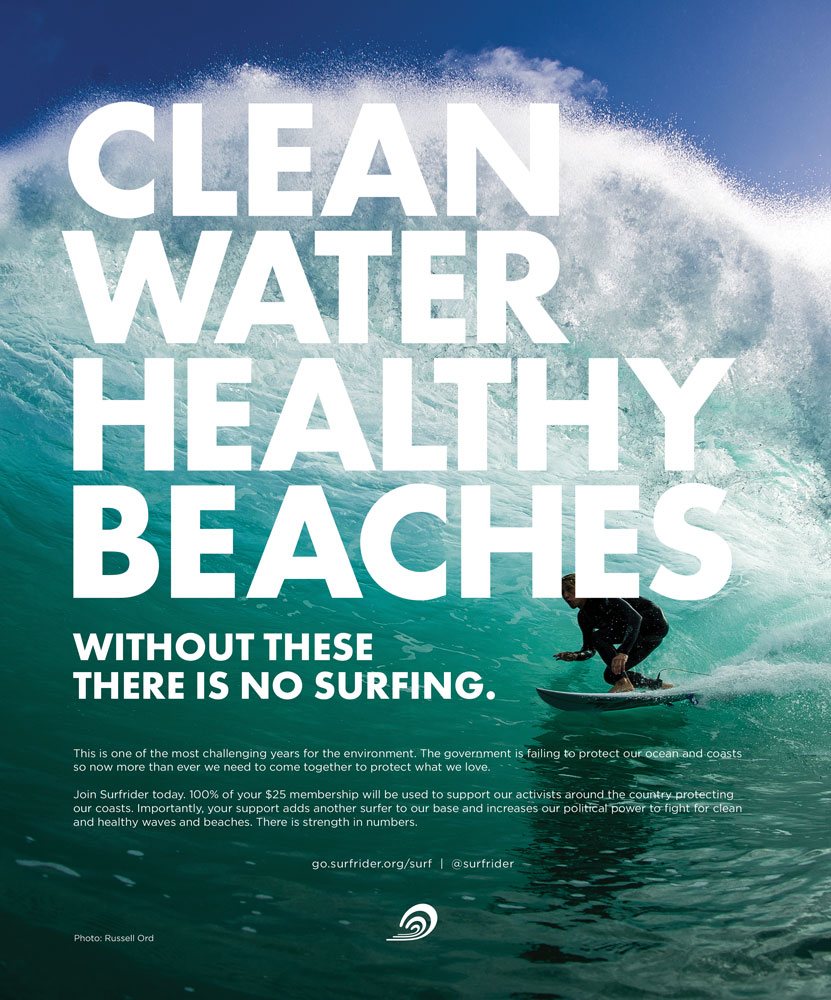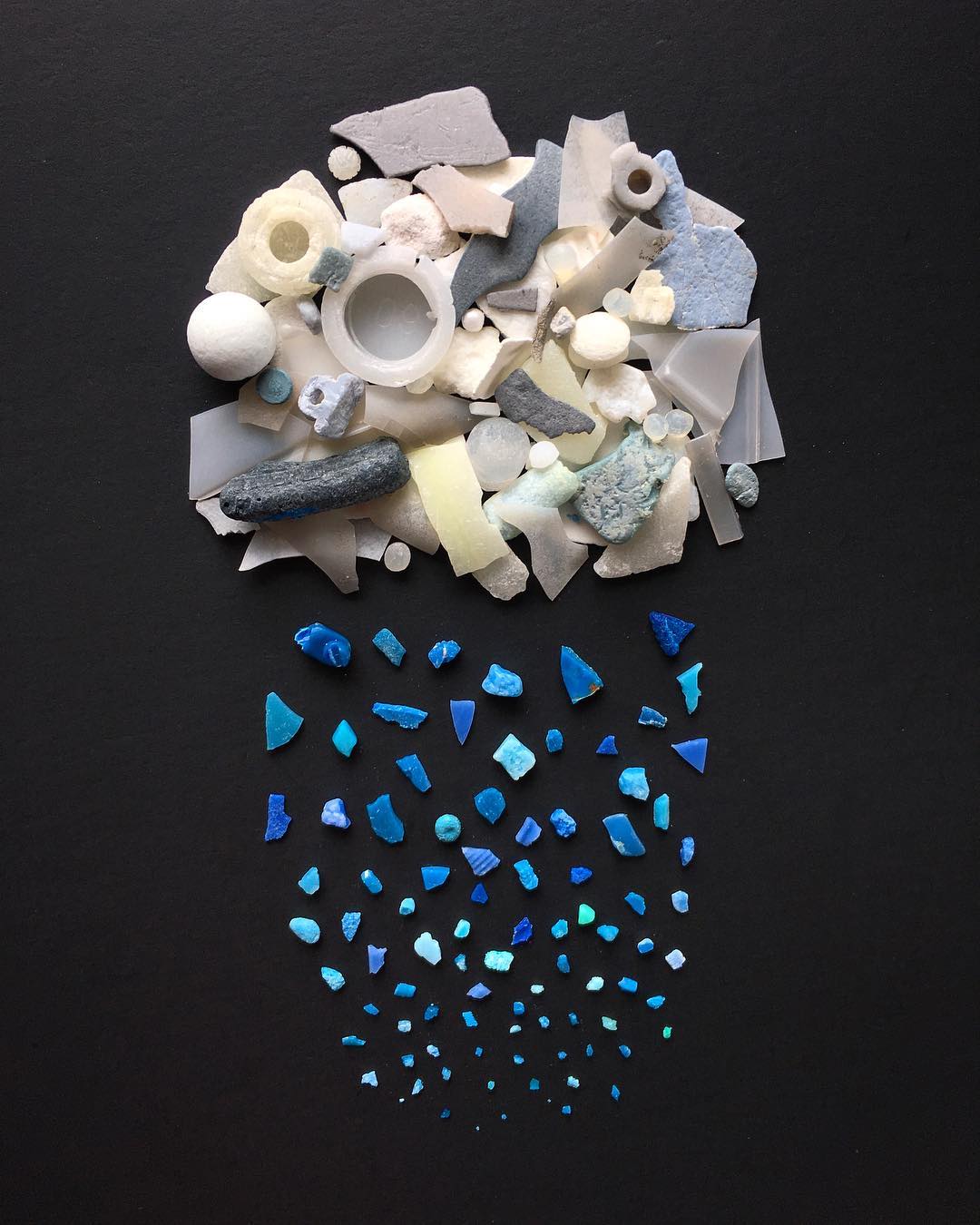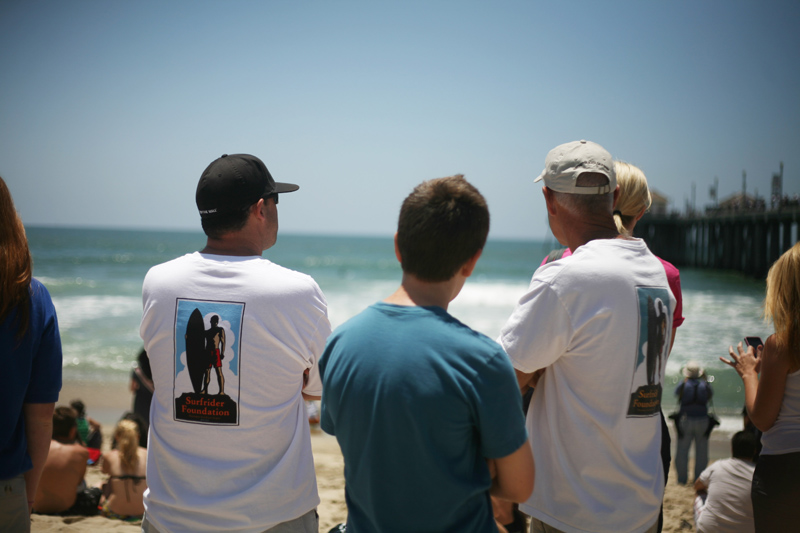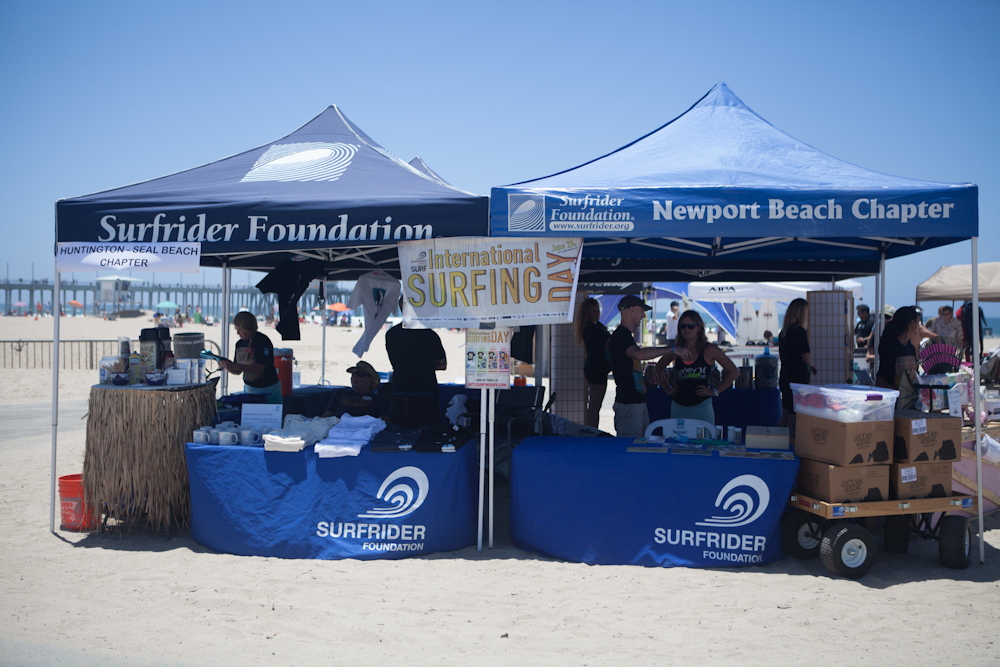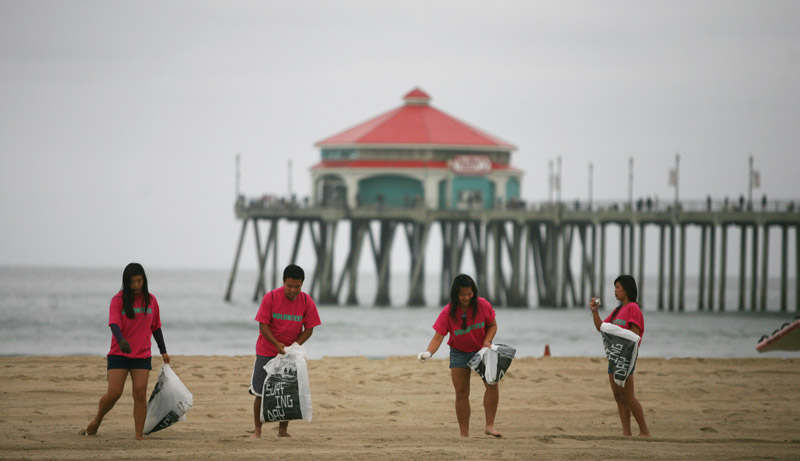2006
For the first time, the Surfrider Foundation defined coastal victory and set a goal for the organization to achieve 150 victories in the next five years.
+
The Surfrider Foundation won a lawsuit regarding several blocked public beach access points in Ponte Vedra, Florida.
+
The establishment of a ship salvage facility in Yaquina Bay, Oregon, is halted by the Surfrider Foundation Newport Oregon Chapter.
2007
The Surfrider Foundation's Wavemaker Awards were created to recognize volunteers, supporters and partners who contribute in extraordinary ways toward Surfrider's mission. Approximately 75 awards have been given to date. Award categories include Environmental Activism, Distinguished Service, Chapter Leadership, Corporate Partnership and Coastal Impact.
2008
Trestles SAVED! The Surfrider Foundation won a huge victory when the California Coastal Commission ruled against a proposed SR-241 Toll Road extension that would have threatened San Onofre State Park and Trestles surf beaches in Southern California.
+
The Surfrider Foundation global headquarters staff moved into a newly constructed building in San Clemente, California. It was awarded a LEED Gold certification by the U.S. Green Building Council (USGBC).
+
Surfrider Foundation launched several new programs
Not the Answer: A program focusing on protecting the nation's coasts from the risky practice of offshore drilling through grassroots advocacy at the federal and state levels. Surfrider chapter efforts include participation in Hands Across the Sand, an annual event where citizens join hands at beaches around the world to say no to offshore drilling and yes to clean energy.
Ocean Friendly Gardens: An outreach program designed to reduce urban runoff and residential water consumption in communities.
Rise Above Plastics: An educational and outreach program designed to raise awareness of and reduce the amount of plastic pollution in coastal and marine environments.
Know Your H2O: A program designed to educate people on the link between freshwater management issues and its impact on the nations oceans, waves, and beaches.
Quad: A youth service program providing young people with an opportunity to start school clubs throughout the United States.
Beachapedia: A wiki-based coastal information resource drawing on expertise of Surfrider Foundation experts and activists.
2009
The organization unveiled a new logo.
2010
The Surfrider Foundation achieved more than 150 victories between 2006 and 2010.
2011
The Surfrider Foundation won a public beach access case in Maine when the Maine Supreme Judicial Court unanimously ruled in McGarvey v. Whittredge that private ownership rights in the intertidal lands do not allow oceanfront property owners to exclude the public from crossing the wet sand to reach the ocean for SCUBA diving access.
+
Making Waves went digital.
2012
Marine Debris Reauthorization Act was a Rise Above Plastics victory that addressed plastic ocean pollution on a national level.
2013
The Maui Surfrider Chapter joined other marine conservation and Native Hawaiian groups in successfully mobilizing state lawmakers to oppose a golf course and 40 luxury homes overlooking Honolua Bay, Hawaii.
The Rhode Island Surfrider Chapter helped save the popular surf break, Ruggles.
2014
Surfrider Foundation won a protracted legal battle against billionaire and venture capitalist Vinod Khosla to restore public access to Martin’s Beach in San Mateo, California. Represented by Cotchett, Pitre & McCarthy legal firm and attorney Mark Massara. Worked closely with San Mateo Surfrider Chapter and California Coastal Commission.
California State Legislature passed the first statewide ban on single-use plastic bags, making California the first state to outlaw single-use plastic bags. Surfrider activists worked toward a statewide ban for six years.
2015
PROTECTING THE BEACH IN WAIKIKI
Surfrider’s Oahu chapter celebrated a victory at the Hawaii Supreme Court that set precedent to protect the sanctity of coastal setback ordinances and prevent abuse of zoning variances. Specifically, the Kyo Ya Hotel and Resort was not allowed to infringe on the coastal setback ordinance established to protect the public beach at Waikiki
2016
Papahanaumokuakea Marine National Monument
Along with many scientists, Native Hawaiians and environmental groups, Surfrider urged Pres. Obama to expand the Papahānaumokuākea Marine National Monument. Pres. Obama announced the expansion at the beginning of the IUCN World Conservation Congress, which was held in Honolulu in early Sept. The expansion of the Papahānaumokuākea Marine Monument would increase the area of the sanctuary from approximately 139,800 square miles to possibly 639,300 square miles. Hawaii is now home to the largest marine protected area in the world!
+
SURFRiDER LAUNCHES OUR OCEAN FRIENDLY RESTAURANTS PROGRAM
Plastic pollution is suffocating our ocean and the many animals that call it home. Researchers estimate there are now over 5.25 trillion pieces of plastic in the ocean with the number continuing to grow every day. This pollution is impacting our marine ecosystems, wildlife such as seabirds, dolphins, fish, and turtles, and plastic fragments are even displacing plankton at the base of the food chain. So what’s the best way to combat this global epidemic facing our ocean? It’s simple: we need to stop the problem at its source! The Surfrider Foundation’s Ocean Friendly Restaurants program does just that. One restaurant, one customer at a time, increases awareness, drives change in behavior and ultimately creates scalable impact to reduce our plastic (and water!) footprint. Learn more about the program here
+
Protected the Atlantic from Offshore Oil Drilling
On December 20th, 2016, President Obama announced permanent ‘withdrawal’ of parts of the Atlantic and Arctic Ocean from future oil and gas drilling. The move protects critical ecological areas off the Atlantic coast along with most of the Chukchie and Beaufort Seas in the Arctic.
2017
Atlantic Protected from Seismic Blasting
On January 6th, 2017, the Bureau of Ocean Energy Management (BOEM) announced denial of all pending permit applications for seismic airgun blasting off the Mid- and South Atlantic coast. The decision is a huge victory for Surfrider Foundation's ongoing campaign to Protect the Atlantic coast from oil and gas development. While the Trump Administration is pushing for both seismic exploration and new offshore drilling again, BOEM's decison is great news for our marine ecosystem and Atlantic coastal communities.
+
Sand mining shut down in Monterey!
Years of efforts by Surfrider Foundation's Monterey chapter and partners to shut down the last coastal sand mine in the United States paid off on July 13th, 2017. The California Coastal Commission unanimously approved an agreement with multinational building-supply company CEMEX to shut down its 8-acre sand mine located in the small Monterey County town of Marina.
+
+
Helping the Community in Rincón Puerto Rico Find Clean Water after Hurricane Maria
In the days and weeks following Hurricane Maria, the Rincón Chapter’s Blue Water Task Force rallied to restart their water testing program in post-storm conditions to provide critical public health and water safety information for local communities.
When Hurricane Maria hit Puerto Rico last fall, it knocked out the entire electrical grid and much of the island’s infrastructure, including roads, hospitals, water supply and telecommunications networks. Amazingly enough, over eight months later, there are still nearly 12,000 homes and businesses without power!
Although chapter volunteers were experiencing the same difficult post-storm conditions as the rest of the island, they were able to restart their water quality monitoring program by teaming up with other relief and health organizations. Watch this video to hear from our Surfrider volunteers themselves how they were able restart their program and empower communities to generate their own water quality information and protect their health.
2018
Surfrider helps pass legislation that bans toxic chemicals oxybenzone & octinoxate in sunscreens to protect coral reefs and human health.
In June, the state legislature passed the nation’s first ever statewide ban on sunscreens that contain chemicals oxybenzone and octinoxate, which are known to harm coral reefs and local fish. On July 3, the governor of Hawai'i signed this bill into law, which will require that every Hawaiian island stops selling sunscreen that contains these two chemicals by January 1, 2021.
The Surfrider Hawai'i chapters have been advocating for this type of coral reef protection for years. In 2016, Surfrider's Hawaii Chapters launched a statewide campaign to ban the toxic chemical oxybenzone. The Surfrider Foundation’s five chapters in Hawaii and our extensive network of supporters are concerned about the damage chemicals like oxybenzone and octinoxate are doing to our reef system, which annually generates about $800 million in gross revenues to the state of Hawaii. We are part of the Hawaii Reef and Ocean Coalition, which was formed last year by concerned coral reef scientists, educators, government officials and environmental groups, and one of our top priorities is banning sunscreens with oxybenzone.
+
San Francisco Passes More than Just a Straw Ban
San Francisco passed the Plastic, Toxics and Litter Reduction Ordinance in August 2018 in response to the outcry against marine plastic pollution. After three years of groundwork by the Surfrider Foundation San Francisco Chapter and allies to raise awareness and build a movement to reduce the use of single-use plastic straws, San Francisco has adopted an ordinance that will ban the sale and distribution of single-use plastic and bio-plastic straws, utensils, stirrers and similar items, in addition to foodware containers that contain fluorinated chemicals.
The ordinance further requires that all single-use foodware and accessories must be compostable (accepted by the city’s composting program) or recyclable.
+
Surfrider launches a new logo on our 34th birthday!
+
Surfrider’s “The united states and oceans of america” campaign launches
We urged the American people to join us to start a new fight. The fight to free our ocean and coasts. Our nation is made up of more water than land. America’s oceans cover nearly 4.5 million square miles, which is 23% greater than U.S. landmass. The coast is a top tourist destination with more than 100 million people visiting our nation’s beaches annually. In fact, coastal recreation and tourism constitute 2.2 million jobs and contribute $115 billion to the nation’s economy every year. But clean water and healthy beaches are increasingly threatened by plastic and ocean pollution, offshore oil drilling, rollbacks to federal protections, development and rising tides. We each have a stake in taking action to ensure the places where we surf, swim, play and live are protected for this and future generations. Together, we are the United States and Oceans of America
2019
#DrillingIsKilling
For those of us who love the coast, the negative impacts of offshore oil drilling are obvious. Offshore drilling has a proven track record of polluting the ocean, damaging coastal economies and threatening a way of life enjoyed by millions of people. T
o help set the record straight, Surfrider released a new short film with surf legend Rob Machado and surfer/ comedian, Tyler Allen, on the Trump administration’s plans for new offshore drilling and what this means for our ocean and coastal communities.
+
Surfrider's network visits Washington D.C. to defend our nation's coasts!
Over one hundred Surfrider Foundation members and recreation industry partners traveled to Washington D.C. on February 28 – March 1st to meet with federal leaders about ways to protect our ocean, waves, and beaches.
+
A Real Border Emergency
The health and well-being of coastal communities on both sides of the U. S. - Mexico border and the millions of people who enjoy this stretch of coastline have long been under threat from the flow of untreated sewage, industrial pollution and trash into the Tijuana River Watershed and the Pacific Ocean.
Learn more about this problem and how Surfrider San Diego is empowering local communities to protect their health and advocate for solutions at the link below.
+
Florida’s Toxic Algae Crisis
in 2019, Florida experienced some of the most severe harmful algal blooms on record, with toxic red tides and blue-green algae suffocating the coastlines.Florida is well-known for its year-round warm climate and beautiful, sandy beaches. While beach tourism drives the state’s economy, people who visit and live in the Sunshine State are losing the long-standing recreational opportunities that they cherish. Ongoing water pollution and harmful algal blooms, including red tides and toxic blue-green algae, are putting public health at risk and causing massive die-offs of fish, marine life and sea turtles.
+
Hawaii Passes First Ever Ban on Reef Harming Sunscreens
In 2019 the state legislature passed the nation’s first ever statewide ban on sunscreens that contain chemicals oxybenzone and octinoxate, which are known to harm coral reefs and local fish. Today, the governor of Hawai'i signed this bill into law, which will require that every Hawaiian island stops selling sunscreen that contains these two chemicals by January 1, 2021.
2020
The Seas Are Rising and So Are We!
Over 150 Surfrider members, industry leaders and surf ambassadors traveled to Washington D.C. on February 26-28 to meet with federal leaders about ways to protect our ocean, waves, and beaches. Participants visited 145 Senate and House offices to urge immediate action on climate change, plastic pollution, water quality and other key issues affecting our coasts and ocean.
+
Surfrider Foundation believes that everybody deserves access to clean water to surf, swim, and play in
The Blue Water Task Force (BWTF) is Surfrider’s citizen science water testing program that provides critical water quality information to protect public health at the beach.
Annually, the Blue Water Task Force:
Runs 55 Active Water Testing Labs
Tests 480+ Beaches
Collects 7500+ Samples
We are happy to present this freshly released film to share the stories of our BWTF volunteers nationwide.
+
STAY HOME, SHRED LATER
COVID-19…
In March of 2020, the world ground to a halt as COVID-19 took over our daily lives. Surfrider developed tools, worked with leading scientists and gave the public valuable information to help navigate these difficult times.
+
U.S. Supreme Court Delivers Victory for the Clean Water Act!
Surfrider Foundation and our co-plaintiffs in the Hawaiʻi Wildlife Fund v. County of Maui case are celebrating an important victory today with the decision to protect water quality and the intent of the Clean Water Act by the United States Supreme Court. In a 6-3 ruling, the majority of the court refused to allow a large loophole in the Act and found that liability for pollution exists “when there is direct discharge from a point source into navigable waters or when there is the functional equivalent of a direct discharge.”
+
Congress Passes Historic Legislation to Protect Public Lands!
Surfrider and our conservation partners across America joyfully celebrated this victory because we have been working for years to fund the LWCF. The Great American Outdoors Act finally ‘makes the LWCF whole’ by fully funding the program, as originally intended by President Kennedy in 1965.
When President Kennedy signed the LWCF into law, his vision was based on a simple concept: take revenues from offshore oil and gas production to protect parks, open spaces, sensitive habitat and to improve recreational opportunities across the U.S. Surfrider is adamantly opposed to new offshore drilling, but we believe it makes sense to direct a percentage of royalties from leases issued in the past to help support conservation. Unfortunately, the program has never been fully funded over the past 55 years.
+
15 Years, Thousands of Activists, One Goal — Save Trestles Forever
After a marathon campaign of more than 15 years, the battle to Save Trestles came to fruition today when Governor Newsom signed AB 1426 into law. This new legislation will protect San Onofre State Beach and Trestles from any type of road construction.
The valiant effort to Save Trestles has been a long and winding road (no pun intended). The first step in this battle was the formation of our mighty Save San Onofre Coalition (SSOC), which represents millions of people from local and national organizations. In 2005, SSOC first came together when over 1,000 activists showed up at a Parks and Recreation Commission hearing to speak out against a six-lane toll road that would have cut through San Onofre State Beach — damaging the last remaining undeveloped watershed in southern California, the world-famous surf break at Trestles Beach, multiple endangered species, and sacred Indigenous sites.
2022
Surfrider Lawsuit Improves Ocean Water Quality and Protects Public Health
Since Surfrider’s first iconic win in 1984 to defend Malibu’s famed surfing break, the organization has worked to preserve the ocean, waves and beaches through a powerful network of volunteers. In recognition of more than three decades of coastal victories, the Surfrider Foundation has introduced a new logo that pays homage to the initial brand design and emphasizes the wave of impact that Surfrider is generating for the protection and enjoyment of the ocean and coasts.
Today Surfrider has over 82 Chapters, 86 high school and college clubs and more than 1 million supporters, volunteers and activists fighting over 100 active campaigns around the country.
Armed with a model to defend the coast, since the Surfrider Foundation started counting victories in 2006, it has won 500 victories (and counting).
Protect what you love today, tomorrow and for generations to come.
For additional information about the Surfrider Foundation please visit surfrider.org



